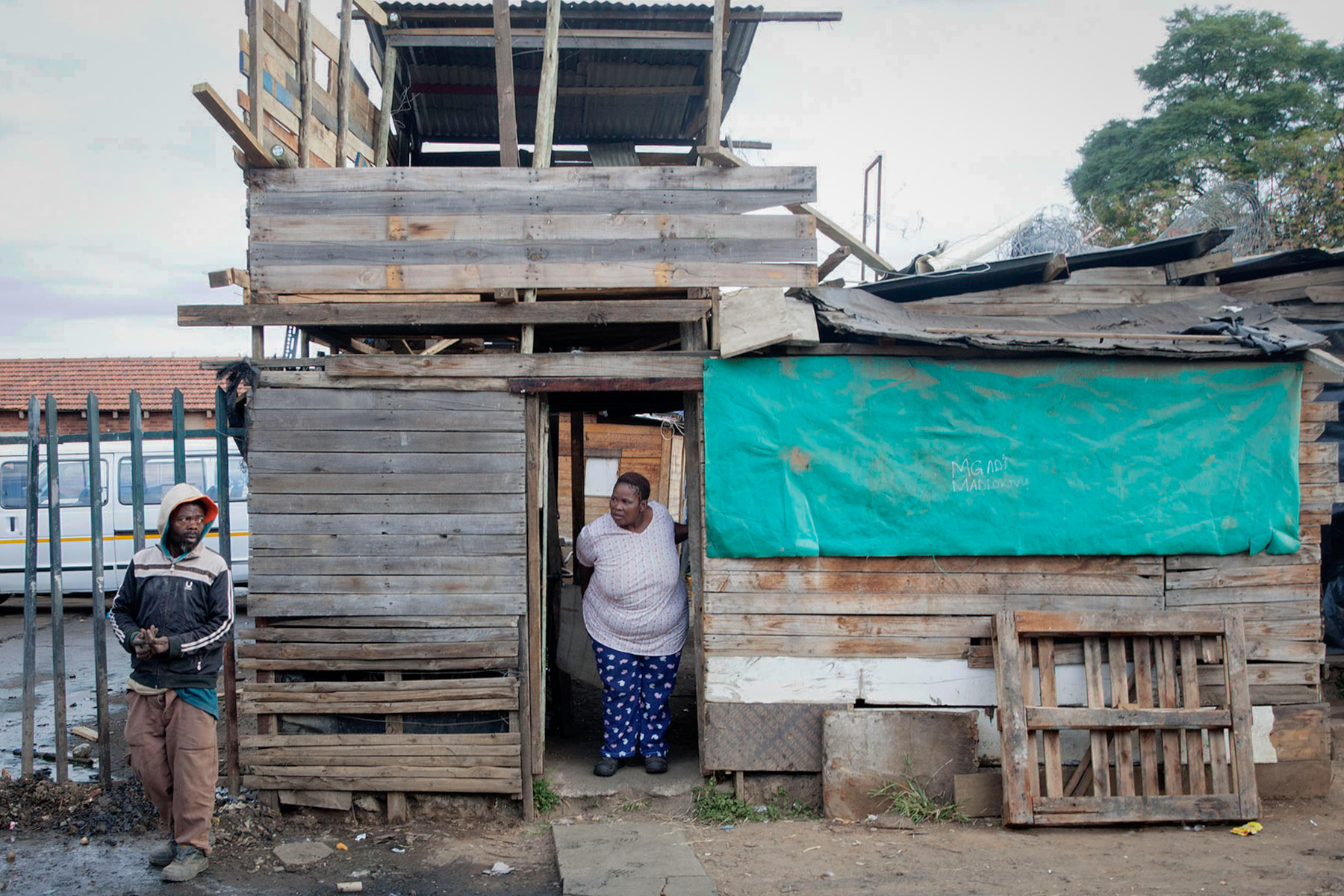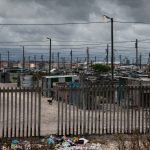Pietermaritzburg, no longer the City of Choice
Under administration and seriously failing its residents, a single administrator’s proposed turnaround strategy appears to be all that might keep the capital city of KwaZulu-Natal from complete col…
Author:
18 July 2019

Pietermaritzburg, once the proud capital city of KwaZulu-Natal and the seat of the provincial legislature, was described by Alan Paton, author of the world-famous Cry, the Beloved Country, as “the lovely city”.
But allegations of looting of public funding, crumbling infrastructure, uncollected refuse, a severe lack of municipal services and a chaotic legislature have plunged the city of more than 200 000 people into crisis.
Residents of Phase 4 township in Imbali shut down the area after nearly four months of interrupted electricity supply and power cuts.
Last month, security guards employed by the Msunduzi Local Municipality went on strike after more than 350 of them lost their jobs.
And residents living on the outskirts of the city in shack settlements have been without running water and electricity for more than a decade.
Related article:
Former member of the executive council for cooperative governance and traditional affairs Nomusa Dube-Ncube placed the municipality under administration on the eve of the national elections in May, owing to “a long period of instability and poor results”.
Part of the reason the municipality was dysfunctional was because councillors could not be held accountable. They were absent from critical meetings, which collapsed the quorum and rendered the council dysfunctional.
At the time, Dube-Ncube reportedly said: “The Msunduzi council has additionally failed to implement consequence management measures against persons responsible for failing to maintain proper records, resulting, for instance, in the municipality’s non-disclosure of pension and medical aid deductions.”
Dube-Ncube added that the municipality, which has consumer debt of R3.5 billion, was not able to guarantee “sustainable services to communities without an intervention from the national and provincial government”.

Turnaround strategy
Msunduzi municipality spokesperson Thobeka Mafumbatha said the City was working on a turnaround strategy to return the municipality to its former glory.
“Currently the municipality has an administrator and this shows that we are making an effort. He is working on a turnaround strategy, which has been presented to the top structures of management and then to council.” Dube-Ncube announced the appointment of Sibusiso Sithole as administrator for the Msunduzi municipality in April.
Mafumbatha said the turnaround strategy would be implemented once the council had adopted it. “We are working on restoring the city to its former glory and ensuring that there is an effort in cleaning the city. Strides have been made in terms of service delivery in terms of providing water, electricity, fixing water pipes and filling potholes,” she said.
The municipality’s inability to provide basic services was brought to the fore again last month when residents of Denmark and Slangspruit embarked on a protest demanding electricity, toilets and houses.
A city in decline
Pietermaritzburg’s bustling city centre is populated by taxi drivers honking for passengers, competing with blaring music. They shout, “eMbali, Sobantu, eFrance,” to commuters, announcing their destinations. There are piles of uncollected rubbish in some alleyways and shack settlements have become part of the city’s modern architecture.
The city became the second largest in the province after Durban in 1838. There are two interpretations about how it got its name. One is that it was named after two Voortrekker leaders, Piet Retief and Gerrit Maritz. The other is that the city was named after Piet Retief, whose full name was Pieter Maurits Retief.
The isiZulu name for Pietermaritzburg is umGungundlovu. By 1987, political violence erupted across the KwaZulu/Natal region, escalating into a struggle for control of the townships. Pietermaritzburg and the surrounding Midlands were at war. Political violence spread to nearly every Pietermaritzburg township as the UDF and Inkatha fought for dominance.
Now governed by the ANC, the Msunduzi Local Municipality was once known for its iconic Victorian-style buildings, prestigious schools, pristine lawns and as an industrial and agricultural hub. But over the years, residents have seen a steady decline in services and the general care afforded the place they call home.
Related article:
The municipality adopted the slogan City of Choice, but residents say it is a misnomer and that Pietermaritzburg shouldn’t be the capital of KwaZulu-Natal as it no longer deserves either of these titles.
The city is located in the KwaZulu-Natal midlands surrounded by towns facing huge unemployment and affected by imports which caused a mass shutdown of the textile industry in the area.
More recently in Hammarsdale, about 40km from Maritzburg, dumped chicken imports forced RCL foods, which owns Rainbow Chicken, to sell 15 of its 25 farms in the area and retrench about 1350 workers.
Residents’ despair
Hand-washing laundry in a plastic basin under a tree, Nelisiwe Khathi, 55, said she moved to Dambuza more than 20 years ago. Khathi and her children survive on a disability grant of R1 700 a month, which she receives for a leg injury. Although life is tough, she remains positive.
“There is no development in the area. Look at my house, it is falling apart. When we ask to build proper houses they [the municipality] tell us that we can only build if we are title deed holders. There are no RDPs in the area because the municipality said it was still consulting with the land owners on releasing the land so that we can be built houses.”
The mother of five said her heart ached that Minister of Higher Education, Science and Technology Blade Nzimande hailed from the same township, but that there is no development.
In its early days, the growth of the city could be attributed to the agricultural, industrial and business hubs and the sprawling suburbs that extended over the nearby picturesque hills and valleys. Municipal services were easily accessible and it was the ideal place for elderly couples to live.
Brian and Crista du Toit, who live on Washington Road bordering the suburbs of Scottsville and Mkondeni, have been married for 47 years. They met and fell in love in Pietermaritzburg and have memories of Maritzburg tucked away in their hearts.

‘An act of service’
Brian, 65, was born and raised in the city and he and his family lived in most of the prominent streets, where schools were walking distance away. “I only went up to standard 7 (grade 9). My dad said I must go and get a job because the situation was tough.”
Du Toit is saddened by the current state of affairs in the city in which he grew up. “These days, you cannot even send your child to the tuck shop. But we have been one of the few fortunate people living in Pietermaritzburg to have had a comfortable life. There is petty theft, but nothing major.”
Not too far from the Du Toits’ home on Washington Road was a burst water pipe. Although not leaking water, the exposed pipe had yet to be fixed.
He added: “Pietermaritzburg is a historic city … I think the city is deteriorating because there are too many people looking for jobs. There are too many people at the top and few workers. There are too many parties and functions, and there are no consequences for wrongdoing or discipline in this city. This city needs a whole lot of upgrades to retain the title of the capital city.”

The city’s youth
The University of KwaZulu-Natal, which has campuses in Durban and Pietermaritzburg, adds to the growing youth population, even though the majority of the student body is based on campuses around Durban.
The campus is surrounded by some of the best public and private schools, including Epworth School, Hilton College, Maritzburg College, Pietermaritzburg Girls’ High School, St Charles College, St John’s Diocesan School for Girls, Voortrekker High School and The Wykeham Collegiate, which contribute to the population in the city.
University of KwaZulu-Natal student Gino Nwandula, 22, originally from Limpopo, enjoys living in Pietermaritzburg. Unlike the ratepayers, he is not really affected by the city’s decline because he lives on campus. “To me, Pietermaritzburg is a good place to study, because places like Durban are superfast,” he said, referring to the lifestyle.
The second-year industrial and applied biotechnology student said he was attracted to the city because of its tranquility. “I wanted a place where I could just focus on my studies. Coming here for me was like starting a new life. There are less friends and so school is a priority.”
Although he is not affected by poor service from the municipality, Nwandula said he had been affected by crime. “Last year, I got mugged and lost everything,” he said, admitting that while he was a victim of petty crime, he was aware that crime in Pietermaritzburg is rife.
Close-knit suburb
One of the poorest housing developments in the city is in Oribi Village, about 4km from the city centre. In the 1940s, the village used to be a military camp. It was later used as a hospital for British troops.
According to reports, it was around the 1950s that poor white families started moving in. Today, the village is home to families that are poor and middle-class white, African, of Indian descent and categorised as coloured under apartheid.
James Boucher, 49, has been living in Oribi for 10 years. “It’s dirty and because of the nyaope smokers, you cannot even go to the tuck shop after 6pm because you will get stabbed, even for a cigarette.”
Related article:
Boucher, who lost his right leg after an accident, uses crutches to get around the one-bedroom home he shares with his partner of nine years, Shannon Muhommad. “We don’t have a geyser for eight years now and we use buckets to bath in. We reported the matter to the municipality and they didn’t do anything about it.”
While the remnants of what the settlement used to be linger on in the old houses, Oribi is a close-knit suburb of young and old people.
“We applied for an RDP house five years ago and we still have not received it. President Cyril Ramaphosa came here when he was still Jacob Zuma’s deputy, and he promised me and my family a house in France. I was put on a waiting list. I am still waiting.”
Although he is angered by this, Boucher is grateful that he still receives a state grant of R1 700 a month for his disability. “Oribi has become a dump. They need to upgrade and clean this place up for the younger generation. They need to put parks for the kids to keep them out of trouble.”

‘Lovely and peaceful’
In Northdale – an area where the residents are predominantly of Indian descent – Krish Govender, 74, fondly remembers the city as “lovely and peaceful”.
“All the black and white people lived together … The only thing that we had in common was the abuse we suffered under the security police. Otherwise, there was water, lights, stormwater drains were maintained as well as the parks. We also had good roads.”
Govender fears how things have changed. “A pole was knocked down on my street a few months ago, this was before the elections, and it has not been fixed. But the city is quick to increase rates and electricity tariffs.”
These days, the father of three sits outside the house he rents, smoking cigarettes: “Today … it is like the Wild, Wild West here. You hear gunshots go off almost every night.”
“The problem is that we have people who do not care about the City sitting in council and in powerful positions in the country. This city does not deserve to be called the capital city of the province. No tourist will come here because there is a state of decay. It is filthy, there is no water in some areas and generally no order in this city,” lamented Govender.
Changed, but not for the better
Downtown, in Queen Street, there is a shack settlement between the Mpolweni taxi rank and a men’s hostel. Thembelihle Ngcobo, 45, has been living in this settlement for 40 years.
Ngcobo, who comes from Elandskop, just outside of Pietermaritzburg, is unemployed. She used to work as a cleaner at the Msunduzi municipality. “We were fired when they brought in new contractors, so I have been sitting at home since 2012. We don’t have houses, we shit in buckets in our house and then throw it out in the mornings,” she said.
In Copesville, Thanduxolo Radebe, 32, stands outside his mud house surrounded by brick houses and shacks. The area is home to locals as well as isiXhosa and Sotho-speaking people, among others. Radebe, who is originally from the Eastern Cape, came to Pietermaritzburg in the hope of finding a job so he could support his family.
Being unemployed, Radebe gets by with help from his wife, who is a domestic worker.
Related article:
“There is no life here. I sent my children back to the Eastern Cape because the kids here are doing drugs and they rob us. We don’t have proper houses, toilets, and because schools are far, most parents have to pay for transport to send their children to school.”
Because of a lack of municipal services in the area, Radebe says he has stopped paying for electricity.
“To relieve ourselves, we dig a hole and bury the faeces. We never hear from the municipality and, as a result, people ended up stealing electricity and connecting electricity illegally.”
Along the gravel roads, there is refuse on almost every street corner and children can be seen playing not too far from informal dumping grounds. Women do their washing at the communal tap, in between the rubbish.
“To be honest, the quality of life back home in the village is much better than the life we are living here. What attracted me to Pietermaritzburg was the schools, the university and the fact that it was closer to home. But when I compare the city to when I first arrived, I can tell you that it has changed, and it has not changed for the better,” said Radebe.

Sports events
Pietermaritzburg hangs its achievements on the Comrades Marathon, the Dusi Canoe Marathon and the Midmar Mile open water swimming event.
Although the state of the city does pose a threat to these competitions, Comrades Marathon chair Cheryl Winn is hopeful that by working with the City, businesses and citizens, the face of the city could change.
“We are in a fortunate position in terms of economic contribution that we bring to Pietermaritzburg, Durban and the province. The latest figures from two years ago show that we contributed R780 million to the province in terms of tourism spend and putting Pietermaritzburg on the map.”
In 2018, there were about 22 000 Comrades Marathon participants from 78 countries and the number is expected to increase in 2021, when the race turns 100 years old.
“This year, we received outstanding cooperation from the City in terms of cleaning the streets, filling of potholes and fixing of street lamps. We do realise that resources are strained and the problem is not unique to Pietermaritzburg only, but working together we can make a difference.”
Burger Street resident Salim Rahman, 50, does not agree with Winn. Instead, he has expressed anger at the state of the city.
“It is embarrassing to be a city that hosts the Comrades Marathon. The only time they clean is when the race is taking place and they only clean the areas where people are running. What about the residents?”

Under administration
Pietermaritzburg Chamber of Business chief executive Melanie Veness said it is frustrating for businesses and residents to find themselves under administration for the second time in 10 years.
“People living in this city are passionate about this city. I love Maritzburg and it breaks our hearts to see what has happened to it. It is actually beyond an embarrassment to walk through the centre of town … Walking into the home affairs building in Maritzburg is a disgrace, I don’t know why nobody is holding those landlords accountable,” said Veness.
Related article:
“We are a capital city and these are government buildings and they are a poor reflection on all of us … Citizens are made to walk into a place that is so shocking. There just does not seem to be any accountability or care … You walk into town and the fountains have been broken for about 15 years.
“Someone has chopped off some of the tree and left these stumps in those half-paved beds that are full of litter. There are no public toilets and so people are defecating all over the pavement, there are cracked pavements and it smells like urine. It is a total disgrace.”
She added that she felt sorry for some of the dedicated officials who are trying to fulfill their mandates without the support of management or a sufficient budget. And at the end of the day, it is the citizens who suffer.
Turnaround a possibility
Veness said service delivery has failed in just about every department of Msunduzi and, to make matters worse, because the economy is not growing, it makes operating the municipality extremely difficult.
However, she said that turning the situation around is possible.
“I think it is unreasonable to expect a single man [Sithole] to do something about a city of this size and importance without the support of a team. We have been promised that he would have a team, but we have not had sight of this team.
“If people are not held accountable and removed from their positions of influence in Msunduzi, then we definitely won’t come right. It is absolutely appalling that our capital city should have been allowed to be run to this state,” she said.





